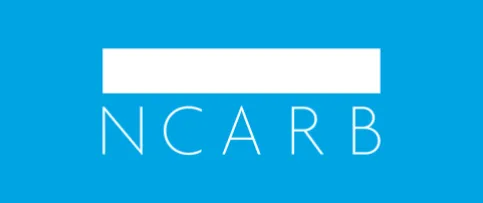Washington, DC—According to the latest data from the National Council of Architectural Registration Boards (NCARB), over 125,000 individuals now hold an NCARB Record, an all-time high. This blend of licensure candidates and licensed practitioners has reached an important milestone, signaling increased interest in acquiring and utilizing architectural licensure. This new high mark reflects the impact of NCARB’s recent programmatic changes aimed at making licensure more accessible to individuals of all backgrounds.
Over the past several years, NCARB has worked to eliminate unnecessary barriers within its programs and services. Among the changes are the 2023 retirement of the Architect Registration Examination®’s (ARE®) five-year rolling clock policy—which reinstated more than 6,600 exam credits—and the 2022 launch of free practice exams, which have led to an average 15 percentage point increase in exam pass rates.
The organization has also implemented new accommodations for licensure candidates who speak English as a Second Language, streamlined pathways to NCARB certification for individuals who don’t have a degree from an accredited architecture program, and launched an alternative method of satisfying the experience program for experienced designers.
Data from NCARB’s latest NCARB by the Numbers report indicates that the recent growth in NCARB’s licensure candidate and architect communities is being driven by increased representation. Diversity in both new licensure candidate and new architect Records is on the rise: 34% of new architects in 2023 identified as a person of color, a 9-percentage point increase from 2019.
“We are thrilled to measure the positive impact of these changes by steady growth in the number of NCARB Record holders,” said NCARB President Kenneth R. Van Tine, AIA, NCARB, LEED AP. “As we continue to re-envision the path to licensure in the years ahead, we hope to see even more individuals realize that architecture is an accessible, exciting career path.”
Record Levels of NCARB Record Holders
Holding an active NCARB Record is a key step for individuals pursuing architectural licensure, necessary for both unlicensed individuals seeking to take the national licensing exam as well as for licensed architects interested in applying for an out-of-state (reciprocal) license.
NCARB’s record number of Record holders includes nearly 70,000 candidates pursuing an architecture license and over 51,000 NCARB Certified architects, as well as several thousand non-certified architects—record highs across all account types. This milestone comes shortly after the COVID-19 pandemic drove a temporary drop in licensure interest, indicating that interest in licensure has fully recovered and is continuing to grow beyond levels seen pre-pandemic.
The Future of Licensure
Over the next several years, NCARB will continue to re-envision architectural licensure through its Pathways to Practice efforts. Launched in 2023, Pathways to Practice seeks to expand licensure access to individuals of all backgrounds by creating a more flexible licensure model outside of the traditional combination of education, experience, and examination. A key step in this effort was October 2024’s release of NCARB’s Competency Standard for Architects, a new competency-based framework that will guide the development of future licensure programs.
For more information about the future of licensure, visit www.ncarb.org/pathways.
About NCARB
The National Council of Architectural Registration Boards’ membership is made up of the architectural licensing boards of the 50 states, the District of Columbia, Guam, the Northern Mariana Islands, Puerto Rico, and the U.S. Virgin Islands. NCARB, in collaboration with these boards, facilitates the licensure and credentialing of architects to protect the health, safety, and welfare of the public.
To achieve these goals, NCARB works with its Member Boards and volunteers to develop and facilitate standards for licensure, including the national examination and experience program. NCARB also recommends regulatory guidelines for licensing boards and helps architects expand their professional reach through the NCARB Certificate. Connect with NCARB on Twitter, Instagram, Facebook, and YouTube.




